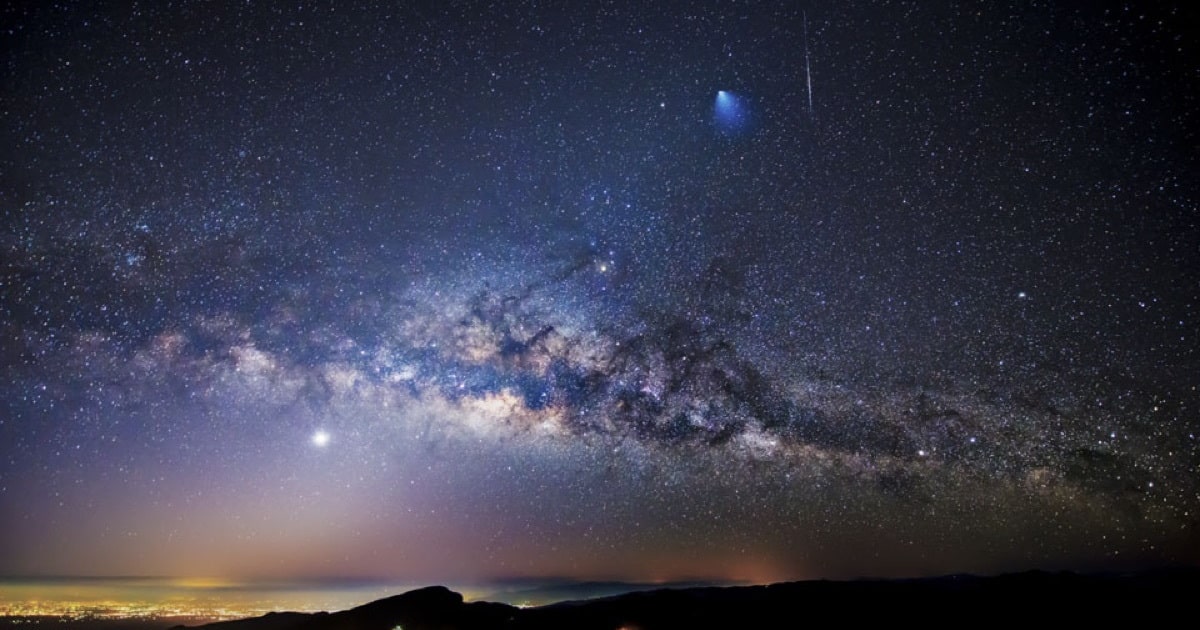It’s an easy assumption to make. Our galaxy is teeming with planets, so life must be abundant. Except, after 58 years of looking, we’ve found nothing. SETI is a bust. (But we’ll keep looking.) This cogent article explains why being alone in the galaxy, indeed the universe, may be a good thing. We passed the Great Filter. (Image credit: NASA.)
Check It Out: SETI is a Bust So Far. We May Be Alone in the Universe

It sure is comforting that all you “cosmologists” are so sure the real cosmologists are wrong.
If you read enough works by respected authors (not junk science writers) about cosmology, evolution, archaeology, history, archaeology, paleontology, psychology, neuroscience, philosophy, and other related disciplines, you would know that the ideas mentioned in the comments, other than those that are said tongue-in-cheek, are not the wild baseless musings of the uninformed. I’ve been reading TMO’s articles long enough to know that the regular commenters are by-and-large very well informed and quite thoughtful with their posts.
Now, would you care to chime in and contribute something other than nihilistic mutterings to the discussion?
Interestingly just this morning I listened to a podcast entitled The Great Moon Hoax of 1835
https://itunes.apple.com/us/podcast/symhc-classics-the-great-moon-hoax-of-1835-part-1/id283605519?i=1000418484043&mt=2
Or life as we know it, maybe we just can’t see it.
It is even harder to travel such distances.
The universe is infinite as far as we can tell, so who are we to say we’re the only intelligence this kaleidoscope of life expanse has going for it
Perhaps with the right conditions (i.e. stellar, planetary, etc.) intelligent life is inevitable. Certainly we already know that it could arise based on our own existence. But the story of our existence is still playing out. Who knows, maybe intelligent life has a built in shelf life? Maybe the type of intelligence that arises, progresses technologically, and thrives is also, by its very nature, self-destructive? And so when intelligent beings reach a point of technological development that gives them the capability to destroy themselves, they inevitably do?
Homo sapiens’ record has certainly been one long demonstration of the various ways we harm the environment and ourselves by shitting where we eat. The paleontological record shows that in the era of H. sapiens, pretty much every instance of human migration into previously unoccupied territory is followed by the mass and rapid extinction of land megafauna. The Americas, Australia, Oceania, Madagascar, you name it. Shortly after humans arrive, the mammoths, mastodons, giant sloths, giant birds, giant turtles, etc. disappear. Civilizations rise and fall, and when they fall its either because some other civilization wipes them out or they wipe themselves out by self-inflicted environmental collapse.
So perhaps the reason we seem to be alone is that no intelligent life in the universe has ever progressed to the point where they have the technology to establish first contact with other intelligent species?
Or we simply haven’t looked around enough.
Or we may be searching for a kind of signal, radio, that is too primitive for advanced civilizations to use.
Or they may know we are here, and are specifically letting us develop on our own. A Prime Directive sort of thing.
I think it’s way too early to assume we are the only civilization in our part of this galaxy, let alone the universe.
Many other “intelligent civilizations” have been saying the same thing for millions of years…
Well said. Space is big. It’s HARD to communicate over interstellar distance.,